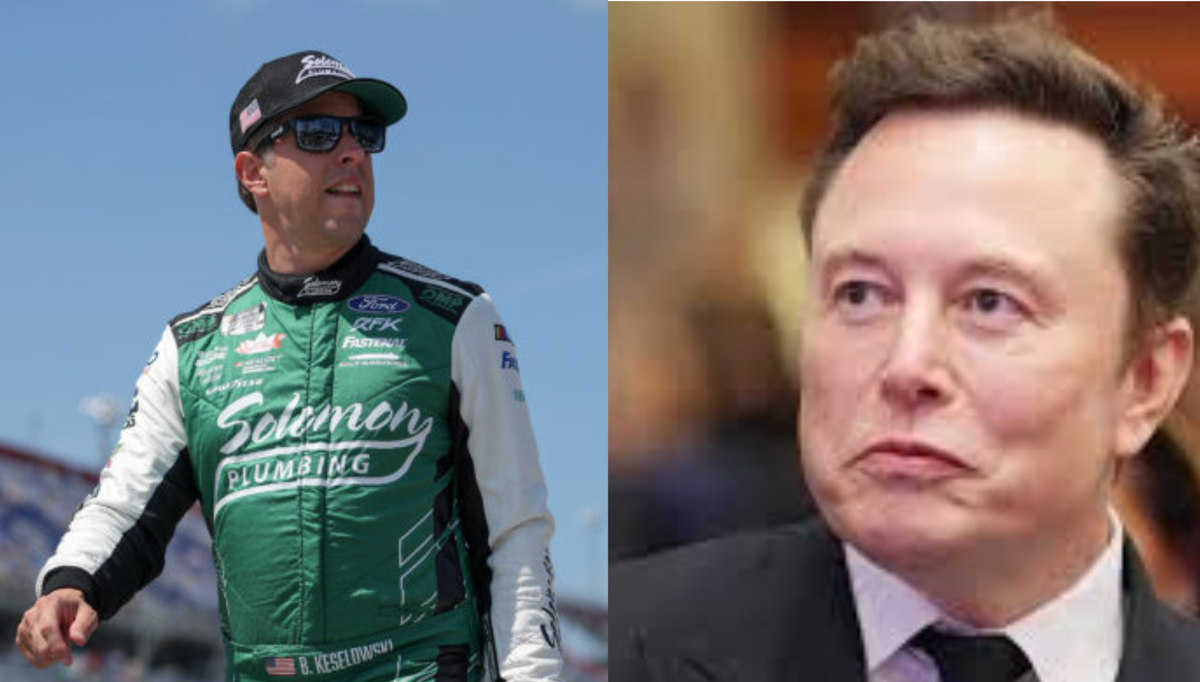

The world is rapidly evolving, and so is our reliance on different types of vehicles. To stay relevant and competitive, adapting to these changes is crucial—a challenge that NASCAR must address to maintain its prominence. When NASCAR was established in 1949, the organization boasted participation from nine Original Equipment Manufacturers (OEMs). The sport last had more than three OEMs in 2012. This was the same year Brad Keselowski clinched to the championship driving for Dodge and Penske Racing.
Watch What’s Trending Now!
After 2012, Penske transitioned to Ford, leaving Dodge out of the sport, dwindling NASCAR to just three OEMs. This raised concerns about diversity and competition within the sport. The rising popularity of electric vehicles and groundbreaking innovations from industry leaders like Elon Musk are currently reshaping the automotive landscape. The growing demand for sustainable and efficient energy sources highlights the need for NASCAR to evolve and embrace these emerging trends to remain at the forefront of the racing world. Here’s what Keselowski has to say about the OEM fiasco and how it might be a deterrent for NASCAR.
ADVERTISEMENT
NASCAR OEMs in danger?
Currently, NASCAR has three OEM options: Chevrolet, Ford, and Toyota. In fact, they have been on the operational front for over a decade now. If any of these manufacturers choose to leave the world of NASCAR, the entire system could come down crashing. Through the years, there have been talks of adding a fourth domino. Companies like Honda have been in the talks for most of the seasons, and yet the discussion had turned out to be futile.
Speaking of this critical situation, Brad Keselowski gave an insight into exactly how many OEMs are required for a standard operation. He said, “The OEM picture and landscape is a significant threat. NASCAR’s been operating with three OEMs now for probably a decade, decade and a half. I would say it’s a bit of a precarious position to be in. I feel like the sport needs about four, maybe five OEMs to be kind of its max healthy position”.
His worries stem from a wider concern when the already Elon Musk-led EV is disrupting the world of motorsports. The global automotive market is completely head over heels for the EV sector. This surge along with the rise of Asian automakers capturing market shares in the U.S., has made it difficult for the traditional NASCAR OEMs under financial pressure. Brad Keselowski added, “As we’re seeing companies like Tesla take off, an take market share, we’re seeing the Asian market really take off, and take market share from the NASCAR OEMs, and potentially even move into the United States and take market share.” Honda was proposed to be the fourth OEM and their market growth had a lot to do with the interest. In 2024, Honda’s sales in the United States increased by 8.8% compared to 2023, and Honda’s market share increased to around 7.6%.
ADVERTISEMENT
In a bid to offer a solution, the RFK Racing driver-owner suggested that OEMs need to focus more on marketing and branding like they used to do. Brad Keselowski added, “I would like to see the OEMs be less technical in the sport… and significantly more marketing and branding… OEMs are spending more now on NASCAR than they ever have and it’s not even close… But it’s increasingly more and more to the technical side” The onus of compelling marketing ideas from the learning manufacturers is somehow missing which could be leading to a loss of essence for NASCAR. Keselowski touched upon the Chevrolet and Ford commercials back in the day with drivers in them, a sight that is non-existent with NASCAR OEMs today.
As the auto industry continues to evolve under the clasps of Elon Musk, which in turn raises global competition, NASCAR has to make more updates to keep up with changing times. However, NASCAR has also seen OEMs dictate the sport on the track more often than they would like in recent times, and for 2025, some strict changes were made.
ADVERTISEMENT
Top Stories
Brad Keselowski Snuffs Out Retirement Rumors Despite Prolonged Winless Streak
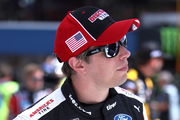
NASCAR Rumor: Fans Left Baffled as Insider Leaks ‘New Championship Format’ Weeks Before 2026 Season
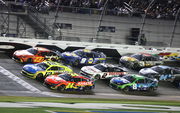
NASCAR’s 67-YO Track Risks Extinction as Race-Banning Decision Looms Large
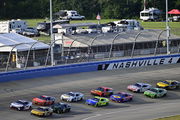
Kyle Larson & Co. Set to Honor Late Sprint Car Legend in Two-Day Long Racing Spectacle
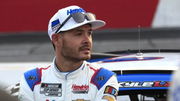
NASCAR Legend’s 6-Words Go Public Years After Escaping Death in Spine-Chilling Accident
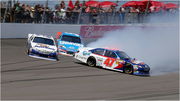
NASCAR announced that OEMs would face stiffer consequences for race manipulation
Last season’s Martinsville Speedway race was an eye-opener after it was found out that Chevrolet and Toyota were guilty of manipulating the race outcomes. As the laps dwindled, only two Championship 4 spots were left up for grabs with Christopher Bell, William Byron, and Ryan Blaney in the fight. Blaney was leading the race, so one spot was all but confirmed. If Byron dropped a spot, Bell would take the lead in the standings. Therefore, Chevrolet orchestrated a blockade by Ross Chastain and Austin Dillon to prevent anyone from passing him.
Seeing this, Christopher Bell and Toyota were accused of asking Bubba Wallace to slow down so that Bell could overtake him and gain a position on Byron. However, Bell overtook him and lost his grip, leading to a Ross Chastain-esque wall ride which saw him penalized and out of the Championship 4. These events were shocking, to say the least, and they led to some hard sanctions. NASCAR levied a total of $600,000 in fines across the teams and suspended 9 crew members for their involvement.
ADVERTISEMENT
NASCAR pledged to implement stricter penalties for OEMs in its 2025 regulations. True to their word, officials have now incorporated these tougher measures into the rulebook. If you go by the updated rules, it would imply that violation could lead to heavy penalties on the OEMs themselves. These include the deduction of manufacturer points, loss of wind tunnel hours, or a reduction in Reduced-Cost Facility Development runs.
Currently, the update rule reads, “Any Competitor(s) who attempts to manipulate the outcome of the Event or encourages, persuades or induces others to manipulate the finishing positions of the Event shall be subject to a penalty from NASCAR”.
The consequences need to be stringent given that OEM manipulation is against the spirit of the sport. NASCAR has changed the performance obligation to 100%. This would ensure that racers should be competing to the best of their ability. Do you think an incident like Martinsville 2024 will ever happen again?
ADVERTISEMENT
ADVERTISEMENT
ADVERTISEMENT
ADVERTISEMENT

